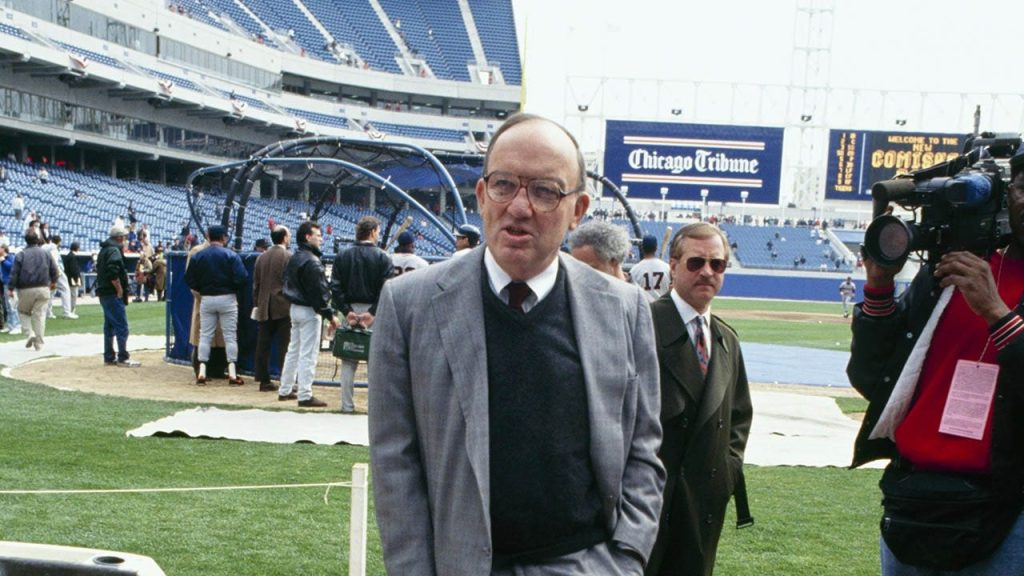Fay Vincent, the eighth Commissioner of Major League Baseball, passed away on Saturday at the age of 86 after a battle with bladder cancer. His tenure, spanning from 1989 to 1992, was marked by significant challenges and controversies, navigating a period of transition and upheaval within the sport. From addressing the fallout of the Pete Rose gambling scandal to managing labor disputes and challenging established ownership practices, Vincent’s time as commissioner left an indelible mark on baseball’s history. He is remembered for his unwavering commitment to the integrity of the game and his willingness to confront difficult issues head-on, even when it meant facing opposition from powerful figures within the sport.
Vincent’s ascension to the commissionership was sudden and unexpected, following the untimely death of his predecessor, Bart Giamatti, just eight days after Giamatti had banned Pete Rose from baseball for life due to gambling allegations. Having served as Giamatti’s deputy commissioner, Vincent was intimately involved in the Rose investigation and played a crucial role in the decision to impose the ban. Assuming the commissionership on September 1, 1989, Vincent immediately faced the daunting task of leading the sport through the aftermath of this highly publicized scandal, while simultaneously dealing with the logistical and emotional challenges posed by the devastating Loma Prieta earthquake, which struck the Bay Area during the World Series between the Oakland Athletics and the San Francisco Giants, forcing a postponement of the series.
The early years of Vincent’s commissionership continued to be turbulent. He presided over the 1990 owners’ lockout, a labor dispute that threatened to disrupt the season. He also took the unprecedented step of permanently suspending New York Yankees owner George Steinbrenner for his association with a known gambler, a move that underscored Vincent’s commitment to upholding the integrity of the game, even when it meant challenging one of baseball’s most powerful and influential owners. This decision, however, would later be overturned by Vincent’s successor, Bud Selig, further illustrating the complex and often contentious relationship between the commissioner’s office and team ownership.
Vincent’s tenure was also characterized by his efforts to address long-standing issues within the sport. He became the first management official to acknowledge the existence of collusion among team owners against free agents following the 1985, 1986, and 1987 seasons, a practice that had effectively suppressed player salaries. He also implemented changes to revenue sharing, dividing expansion fees between the American and National Leagues, and attempted to realign the National League divisions, a move aimed at creating greater competitive balance. These actions, while intended to benefit the overall health of the game, often sparked friction with team owners, who perceived them as infringements on their autonomy.
Beyond the controversies and labor disputes, Vincent also oversaw significant changes to the record books. He chaired an eight-member committee tasked with ensuring statistical accuracy, leading to the removal of the asterisk that had long accompanied Roger Maris’ single-season home run record, a symbolic gesture that finally recognized Maris’ achievement without qualification. The committee also established a standardized definition of a no-hitter, requiring games to be at least nine innings long, resulting in the removal of 50 previously recognized no-hitters from the official records. This commitment to statistical integrity reflects Vincent’s dedication to upholding the historical accuracy of the sport.
Fay Vincent’s time as commissioner, though relatively brief, was a period of significant change and transformation for Major League Baseball. He faced a series of complex challenges, from natural disasters and labor disputes to ownership controversies and statistical revisions. While his decisions were not always popular, they were often driven by a deep sense of responsibility to the game and a desire to protect its integrity. His legacy is one of a commissioner who was not afraid to confront difficult issues, even when it meant facing opposition from powerful forces within the sport. He is remembered for his unwavering dedication to baseball, his commitment to fairness, and his willingness to make tough decisions for the betterment of the game. His passing marks the end of an era in baseball history, a period defined by significant challenges and transformative changes, many of which were navigated under Vincent’s leadership.

